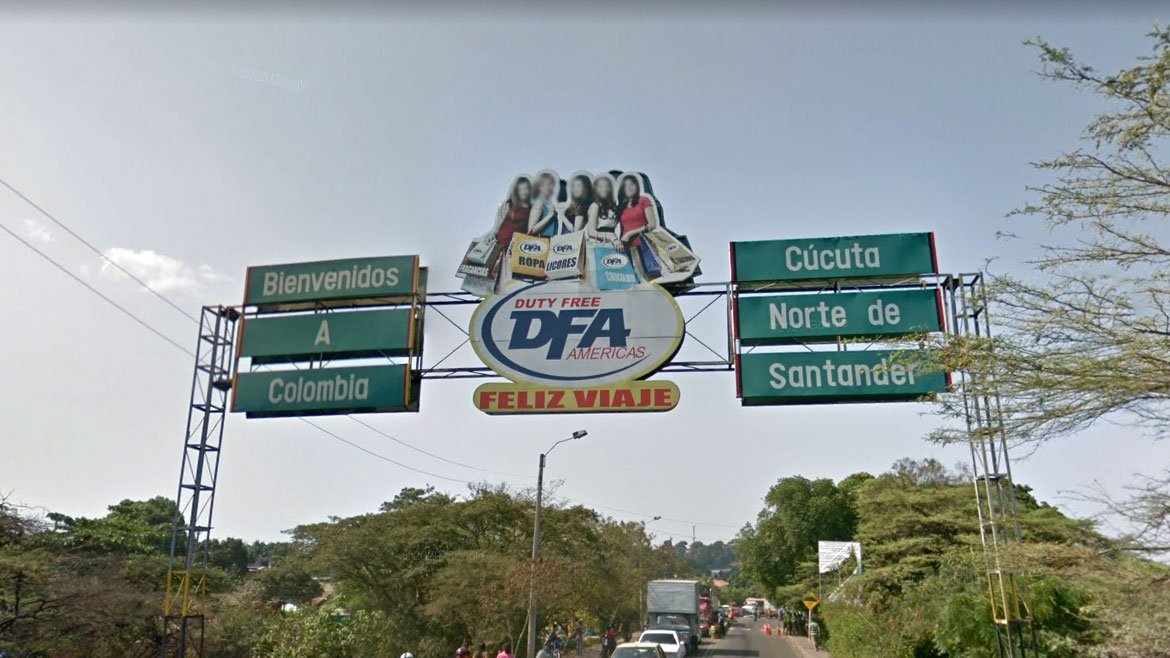Colombia’s security forces appear to have left locals in the region around Colombia’s main city on the border with Venezuela at the mercy of illegal armed groups.
The Catatumbo region in Norte de Santander has historically suffered state abandonment, which has forced the locals to live under guerrilla rule for decades.
Paramilitary groups that fight the guerrillas in the countryside have long been financed by organized crime in Cucuta and its Venezuelan sister city San Cristobal.
The power of the illegal armed groups has marginalized and corrupted local police and army units that are supposed to control the border.
The latest crisis
Catatumbo’s latest security crisis is caused by an unprecedented number of illegal armed groups that are vying for control over the border region that is one of Colombia’s main coca growing regions.
These illegal armed groups have specifically been targeting community leaders who aspire one of the congressional seats reserved for Catatumbo as part of a 2016 peace deal with now-defunct guerrilla group FARC.
Women are another target after they organized in opposition of the forced recruitment of their children, Carmen Garcia of the Association of Catatumbo Mothers for Peace told newspaper El Espectador.
Social leader Carmen Garcia
According to Fundacion Progresar, a human rights organization from Cucuta, 22 community leaders and forced another 22 to flee the border region because of death threats since 2020.
Nine massacres were committed in Catatumbo and Cucuta since the beginning of last year, according to think tank Indepaz.
Violence against civilians since 2020
The political violence
Violence against community leaders in Catatumbo increased after the Constitutional Court granted the region extra seats in Congress as part of the peace process with the FARC earlier this year.
This political violence has made it virtually impossible for these representatives to campaign ahead of the congressional elections in March next year.
Social leader Saul Alfonso Caceres
Mireya Leon, a representative of the Catatumbo Women’s Network, decided she wouldn’t even try to run for office after armed men forced the women’s rights activist to flee the region in February.
Social leader Mireya Leon
Locals have little faith in the security forces that have been connected to illegal armed groups and organized crime on multiple occasions.
Furthermore, locals have complained that the authorities are behind much of the terror.
Social leader Carmen Garcia
The retreat of the security forces
The security forces have been unable to provide security after the 33rd Brigade was ordered to assist the Cucuta Police Department in maintaining order in the city in July.
Consequently, locals are left at the mercy of guerrilla group ELN, FARC dissidents and the paramilitary groups that are trying to oust the rebels.
Illegal armed groups in Catatumbo
All illegal armed groups combined have some 1,500 armed members in Norte de Santander, one of the regional police commanders, General Fabio Cancelado, told newspaper El Tiempo.
The National army’s 33rd Brigade has largely been forced to retreat to Cucuta after a series of events that threatened public order in the city.
The Catatumbo state collapse
Police remain in the towns throughout Cucuta but barely leave their stations, which allows the illegal armed groups to impose their rule without relatively little opposition.
Tibu Police Department
ELN graffiti in Catatumbo
Cucuta slum on Venezuelan border
Coca field in Tibu
Is there hope for Catatumbo?
“The situation we are in now is the responsibility of the government” for failing to implement the peace deal with the FARC and agreeing to measures to reduce violence against civilians, farmers’ representative Juan Quintero told newspaper El Espectador.
Quintero and other regional leaders have been promoting a “humanitarian agreement” between all armed actors in an attempt to reduce violence in Catatumbo ahead of the 2022 elections.
Humanitarian agreement
- No violence against civilians
- No attacks on public buildings like churches and schools
- Ban on landmines
- Ban on child recruitment
- Freedom of movement of civilians
- Ban on violence that impedes civilians to work
- Ban on violence on humanitarian missions
The ELN, the EPL and FARC dissident groups have expressed their support for the humanitarian agreement, the farmers’ leader said.
“The only actor that until now has not responded is the Colombian State,” according to Quintero.
Without any state commitment, the community leaders believe that “it will be impossible” to reduce violence.


